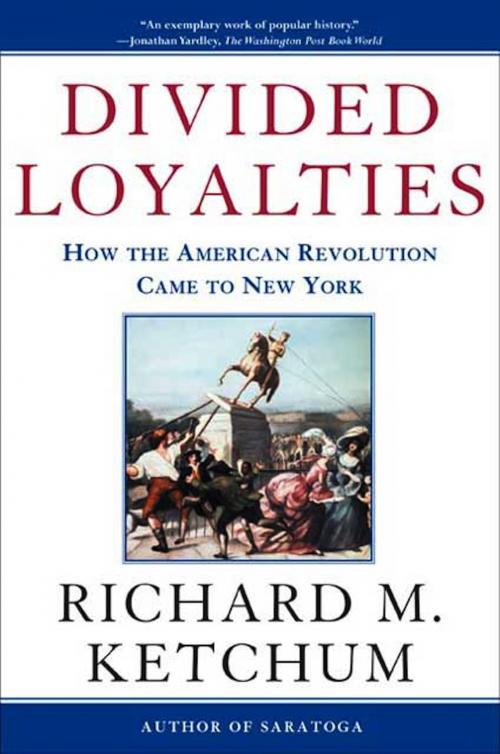Divided Loyalties
How the American Revolution Came to New York
Nonfiction, History, Americas, United States, Revolutionary Period (1775-1800)| Author: | Richard M. Ketchum | ISBN: | 9781466879492 |
| Publisher: | Henry Holt and Co. | Publication: | August 26, 2014 |
| Imprint: | Henry Holt and Co. | Language: | English |
| Author: | Richard M. Ketchum |
| ISBN: | 9781466879492 |
| Publisher: | Henry Holt and Co. |
| Publication: | August 26, 2014 |
| Imprint: | Henry Holt and Co. |
| Language: | English |
Before the Civil War splintered the young country, there was another conflict that divided friends and family--the Revolutionary War
Prior to the French and Indian War, the British government had taken little interest in their expanding American empire. Years of neglect had allowed America's fledgling democracy to gain power, but by 1760 America had become the biggest and fastest-growing part of the British economy, and the mother country required tribute.
When the Revolution came to New York City, it tore apart a community that was already riven by deep-seated family, political, religious, and economic antagonisms. Focusing on a number of individuals, Divided Loyalties describes their response to increasingly drastic actions taken in London by a succession of the king's ministers, which finally forced people to take sides and decide whether they would continue their loyalty to Great Britain and the king, or cast their lot with the American insurgents.
Using fascinating detail to draw us into history's narrative, Richard M. Ketchum explains why New Yorkers with similar life experiences--even members of the same family--chose different sides when the war erupted.
Before the Civil War splintered the young country, there was another conflict that divided friends and family--the Revolutionary War
Prior to the French and Indian War, the British government had taken little interest in their expanding American empire. Years of neglect had allowed America's fledgling democracy to gain power, but by 1760 America had become the biggest and fastest-growing part of the British economy, and the mother country required tribute.
When the Revolution came to New York City, it tore apart a community that was already riven by deep-seated family, political, religious, and economic antagonisms. Focusing on a number of individuals, Divided Loyalties describes their response to increasingly drastic actions taken in London by a succession of the king's ministers, which finally forced people to take sides and decide whether they would continue their loyalty to Great Britain and the king, or cast their lot with the American insurgents.
Using fascinating detail to draw us into history's narrative, Richard M. Ketchum explains why New Yorkers with similar life experiences--even members of the same family--chose different sides when the war erupted.















